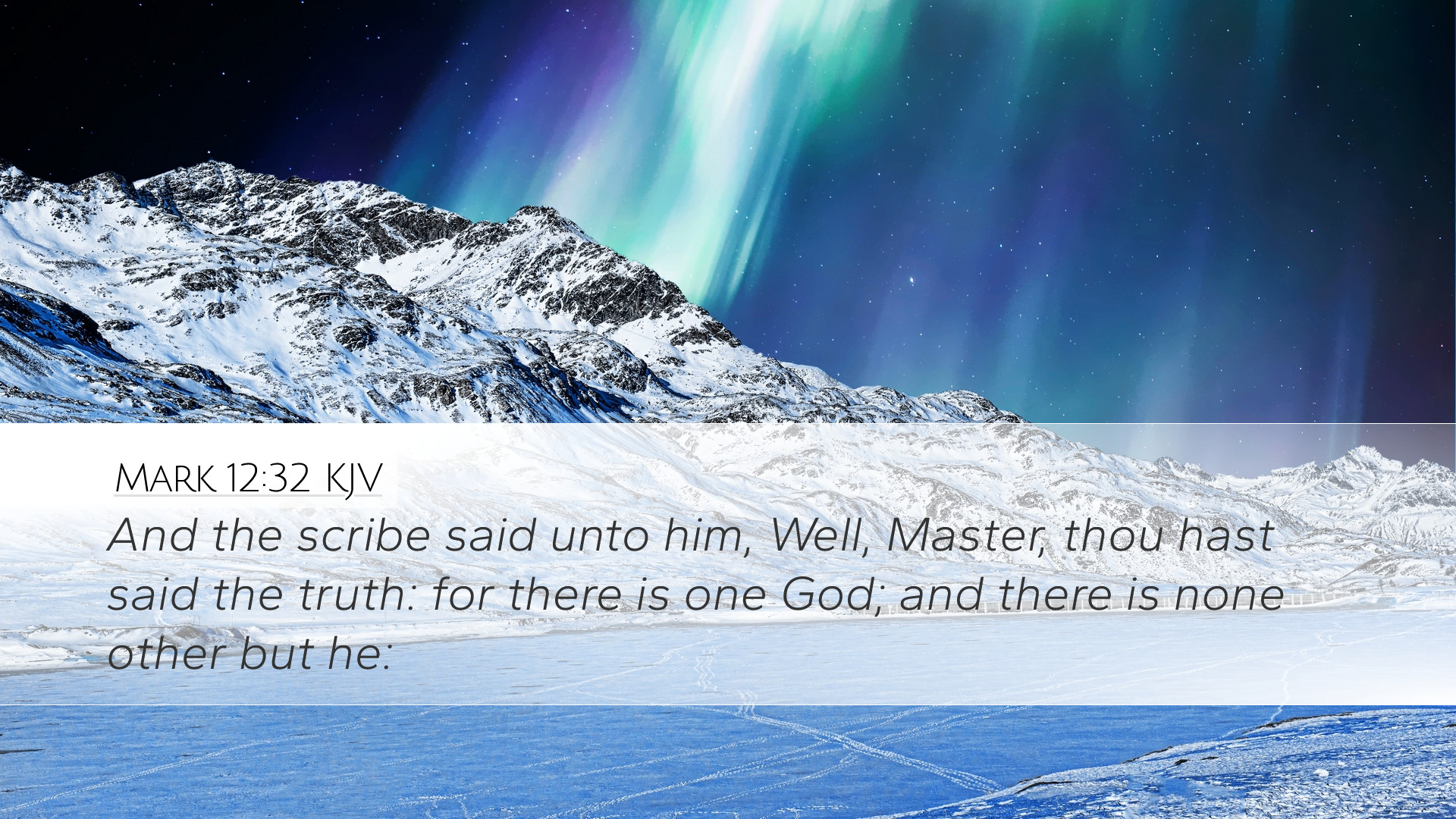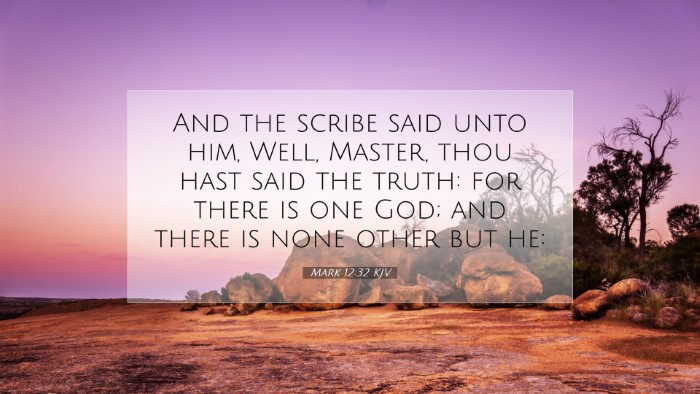Commentary on Mark 12:32
Mark 12:32 states: "And the scribe said unto him, Well, Master, thou hast said the truth: for there is one God; and there is none other but he." This verse captures a significant theological affirmation regarding the nature of God, which has implications for both Jewish and Christian doctrine. Below, we will delve into insights from public domain commentaries, exploring the depth of this proclamation.
Understanding the Context
In the context of Mark 12, we find Jesus engaging in dialogue with various religious leaders. This particular exchange involves a scribe, a learned individual in the Jewish tradition, who recognizes the weight of Jesus’ teaching regarding the Shema—a pivotal declaration of monotheism in Deuteronomy 6:4.
The Significance of the Scribe’s Acceptance
Matthew Henry elaborates on the scribe’s acknowledgment of Jesus' words, noting that it demonstrates a rare moment of agreement between a religious leader and Jesus. The scribe, representing the knowledgeable elite, aligns himself with the truth laid out by Jesus, indicating an intellectual openness and a recognition of divine authority.
The Nature of God
Both Albert Barnes and Adam Clarke emphasize the theological implications of the phrase "there is one God." This assertion is foundational not only to Judaism but also to Christianity, illustrating the monotheistic essence of both faiths. The statement underlines the exclusivity and uniqueness of God, contrasting sharply with surrounding pagan beliefs that embraced polytheism.
Theological Reflections
- Monotheism: The declaration challenges the hearts of many, urging believers to reflect upon their relationship with the singular divine entity. God is not merely one among many; He is the one true God, fostering a relationship built on singular devotion.
- The Nature of God's Authority: Barnes notes that understanding God as the one true being entails recognizing His sovereignty and ultimate authority in all matters of life. This recognition is what gives weight and relevance to Jesus' teachings.
- Implications for Worship: The scribe’s affirmation holds significant implications for worship. Since there is only one God, it calls for undivided worship and loyalty towards Him. Clarke reminds us that this aspect of God’s nature demands a holistic commitment, not merely mental assent.
Application for the Believer
The implications of Mark 12:32 extend far beyond its immediate context, shaping the believer's life and faith practice. As pastors and theologians reflect on this verse, they are called to emphasize several key applications:
- Clarity in Teaching: Pastors must communicate the truth of God's singularity clearly, helping congregants to understand the implications of worshiping the one true God.
- Encouragement of Intellectual Inquiry: The scribe's willingness to recognize truth fosters an environment where questioning and seeking truth is encouraged. Theological education and discourse should be upheld.
- Call to Holiness: Recognizing that there is only one God sets a standard for moral and ethical conduct within the community of believers. It demands a lifestyle that reflects God’s character and commands.
Conclusion
Mark 12:32 serves as a vital reminder for every believer regarding the nature of God and the importance of acknowledging Him as the one true God. The commentary insights from Matthew Henry, Albert Barnes, and Adam Clarke together paint a comprehensive picture that encourages further study and reflection. Pastors, students, and theologians alike find in this exchange a rich ground for exploration of faith, worship, and the filled implications of monotheistic belief.


